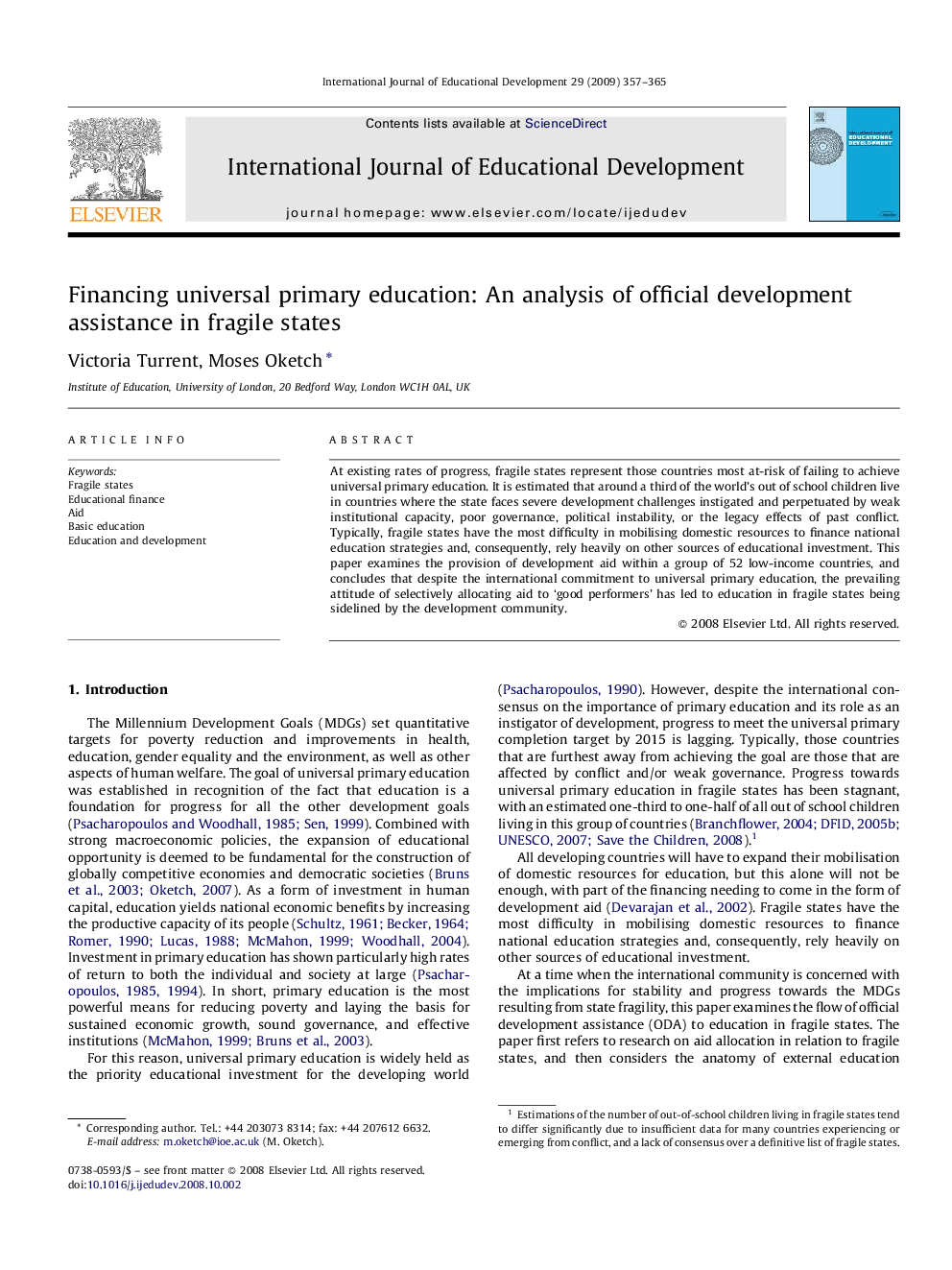| Article ID | Journal | Published Year | Pages | File Type |
|---|---|---|---|---|
| 356450 | International Journal of Educational Development | 2009 | 9 Pages |
At existing rates of progress, fragile states represent those countries most at-risk of failing to achieve universal primary education. It is estimated that around a third of the world's out of school children live in countries where the state faces severe development challenges instigated and perpetuated by weak institutional capacity, poor governance, political instability, or the legacy effects of past conflict. Typically, fragile states have the most difficulty in mobilising domestic resources to finance national education strategies and, consequently, rely heavily on other sources of educational investment. This paper examines the provision of development aid within a group of 52 low-income countries, and concludes that despite the international commitment to universal primary education, the prevailing attitude of selectively allocating aid to ‘good performers’ has led to education in fragile states being sidelined by the development community.
